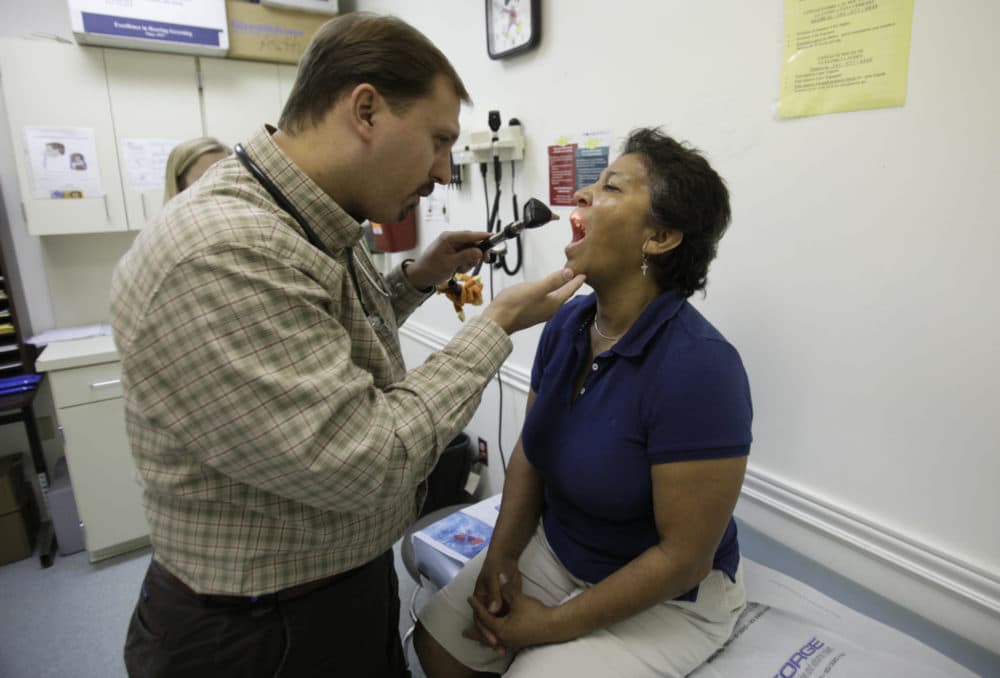Advertisement
Commentary
Trump's 'Public Charge' Rule Could Mean Life-And-Death Decisions For Legal Immigrants

As primary care physicians working with many immigrant patients and their families, these are the kinds of concerns we often hear:
• “I’m afraid to apply for food stamps to help feed my new baby because I don’t want the government to come after us.”
• “I don’t dare apply for health insurance because I don’t want immigration to know where I live.
• “I can’t call the police on my abuser because they’ll deport me.”
We have long told our patients what we believed to be true: that accessing nutrition, health care and other government services they were eligible for would help keep them healthy and safe.
It now looks like we were wrong.
The Trump administration recently announced a draft regulation that would penalize legal immigrants applying for green cards if they use public benefits — what’s referred to as being a “public charge.”
The regulation signals that legal immigrants that apply for Medicaid, food stamps and public housing benefits may lose their legal status.
The result is that our foreign-born patients would have to make life-and-death decisions between seeking care, food or shelter, and the risk of deportation.
We’ve noticed that even those protected from this regulation, including refugees and asylum seekers, are afraid to apply for benefits, worried that their legal status will be threatened next.
Ironically, the press release about the regulation said it would enforce a law that "protects American taxpayers," yet legal immigrants and most undocumented immigrants pay taxes. In one estimate, they added a net of $20 to 30 billion to the government, compared to a net loss from those born on U.S. soil.
But our concerns are human rather than financial. We know that patients with treatable conditions like diabetes and hypertension will avoid seeking care. They will only come when it is too late, which will likely result in higher system costs.
We know that one of the most effective tools for keeping children healthy is enrolling them in a nutrition assistance program, known as WIC. We also know that the nearly 18 million children with at least one immigrant parent may no longer have access to WIC if their parent is fearful of signing up, even if the program is not included in the new regulation.
It will be impossible for us to promote the health of our communities when so many are fearful of accessing basic care. Nearly a quarter of Boston residents and nearly half of Everett residents are foreign-born.
How will we promote vaccination or stop future epidemics when immigrants are too afraid to sign up for health insurance?
The fear among immigrant communities has also kept immigrants and their citizen children out of shelters during hurricanes and floods. Who knows how many lives will be unnecessarily lost in future disasters if this rule goes through?
Last year, when one of our patients couldn’t afford food and struggled to take care of her newborn son, a citizen, we encouraged the family to sign up for assistance. They refused. We tried to ease their fears — arguing that they needed the benefits to keep their family healthy and that it wouldn’t affect their immigration status — but in retrospect, they understood the potential consequences better than we did.
By merely proposing this rule, the Trump administration has eroded hard-won trust that doctors, public health officials and others must work to restore for the benefit of our communities. If this regulation is signed, we may never be able to rebuild that trust.
Sarah Kimball, MD and Nicolette Oleng, MD, are primary care physicians at Boston Medical Center. Elisabeth Poorman, MD, MPH, is a primary care physician at Cambridge Health Alliance in Everett, Massachusetts.